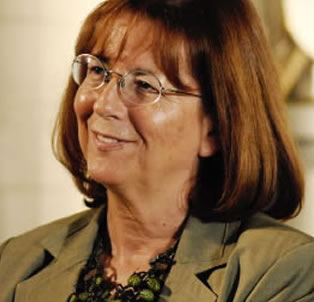Join DAS Academic Book of Science Chilean
Friday, June 28, 2013

The book “Brilliant Minds", by Paul Rosenblatt and Daniela Miranda, and published by the New Editorial & Life Science, tells the stories of academic Astronomy Department (DAS) at the Universidad de Chile, María Teresa Ruiz (National Prize of Sciences 1997), Juan Asenjo (National Prize of Sciences 2004), and Eric Goals (National Award Sciences 1993), among others, in order to reconstruct the scientific development in Chile, through the eyes of its own players.
According to Paul Rosenblatt, the collection can be a source that excites young people to this knowledge. "I think the nicest thing about this book is that you can enthuse young people, in fact most of the stories are people who studied in public schools. Some of them, like Ricardo Baeza, did his early years in rural schools. For this reason I believe that this is a great message, or really if you like something and wherever you want to do, and if we improve public school education we will have top scientists anyway, "he said.
The program director Eureka & Life Science Foundation, said that "the book is a seed that attempts to document the story." For that reason, 500 copies of 2000 published in the first edition, will be donated to National Public Library system and soon will be downloadable from the internet.
El también director del programa Eureka de la Fundación Ciencia&Vida, señaló que “el libro es una semilla que intenta documentar la historia”. Por lo mismo 500 ejemplares, de los 2000 publicados en esta primera edición, serán donados al sistema Nacional de Bibliotecas Públicas y prontamente se podrá descargar desde internet.
"Brilliant Minds" TV series was born of the same name that is recorded for more than a year, and is issued by Canal 13 Cable.
BRIGHT MINDS
The publication also includes the experiences of Fernando Mönckeberg National Award for Applied Science and Technology 1998; Mario Luxoro, National Natural Science Award 2000, Carlos Conca, National Prize of Sciences 2000; Ramón Latorre, National Natural Science Award 2002, Paul Valenzuela, National Prize of Applied Sciences 2002; Nibaldo Inestrosa, National Natural Science Award 2008, and Ricardo Baeza Sciences National Award 2009.
Most of them began their interest from very small and without the financial means favorable to their development. However, such was his enthusiasm that managed to meet their goals. In relation to this, the student of dwarf stars (low-mass), Maria Teresa Ruiz, harangued parents and teachers to teach science at a young age. "I believe you really have to start teaching science when the kids are small, so when at age 12 his interests change, they are excited about science".
The researcher also criticized the current science programs in schools, and encouraged them to "be more attractive, designed for young people and used the tools they have today, as the Internet".
This project was made possible by the Cultural Donations Law and supported by CELFIN and Bios Group. Also, is already preparing a new version that brings together another 10 National Awards.




